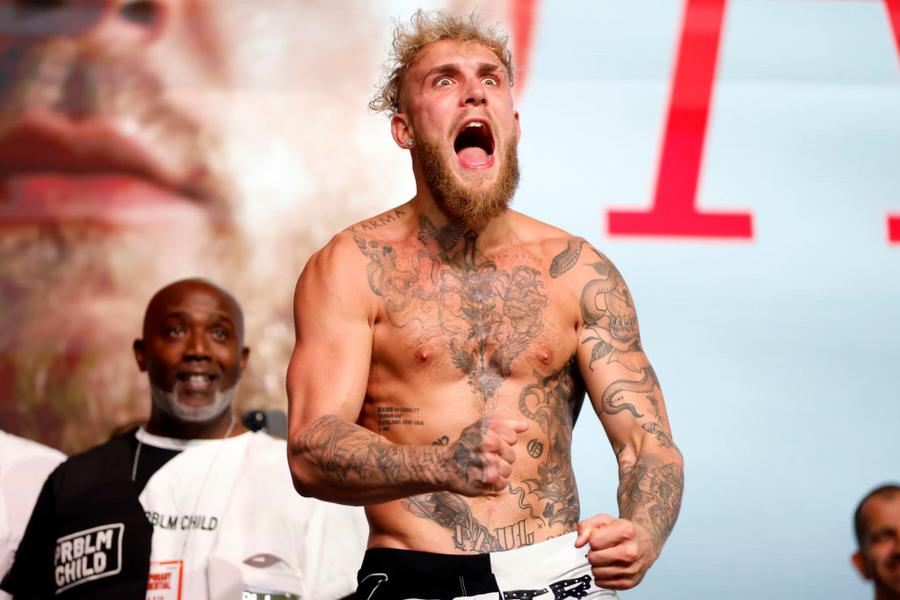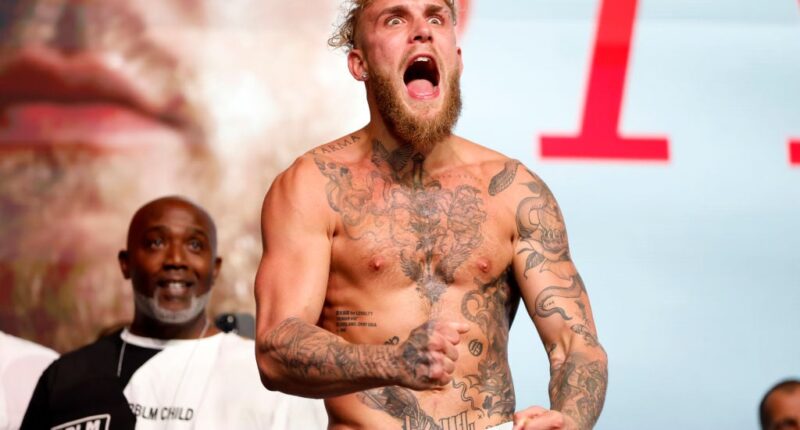Next month’s Anthony Joshua vs. Jake Paul matchup in Miami is shaping up to be one of the most bizarre, polarizing, and financially supercharged events in modern boxing history. What began as a rumor that seemed too absurd to take seriously has now been confirmed as a full eight-round professional heavyweight contest scheduled for December 19 at the Kaseya Center, streaming globally on Netflix. And according to multiple reports, including a widely circulated Daily Mail figure and follow-up commentary from former UFC champion Michael Bisping, the payday attached to this spectacle is staggering: a combined purse estimated at $184 million, split evenly, with each man reportedly earning about $92 million.
For perspective, that puts this fight in the same financial stratosphere as marquee boxing events like Mayweather vs. Pacquiao and Mayweather vs. McGregor. Yet unlike those matchups, this one pairs a former unified heavyweight champion with a YouTuber turned novice boxer whose résumé contains more preposterous spectacle than substance. It is equal parts athletic event, Netflix mega production, and cultural circus designed to capture global attention.
A Wildly Lucrative Deal That Was Too Big To Ignore
Anthony Joshua, now 36, has stayed largely out of the spotlight since being knocked out by Daniel Dubois 14 months ago. Promoter Eddie Hearn had previously suggested Joshua was targeting a simple tune-up bout before resuming negotiations for a massive 2026 showdown with Tyson Fury. But when Jake Paul’s team and Netflix put a nine-figure purse on the table, Joshua did not hesitate.
“You’ll see a lot more fighters take these opportunities,” Joshua said. “I’m here to do massive numbers, have big fights, and break every record.“
The deal was so large that DAZN, which has Joshua under a long-term exclusive contract, reportedly received a substantial payout to let him fight on a rival platform.
Jake Paul’s Biggest Payday By Far
Jake Paul has made a career out of selecting opponents who minimize danger while maximizing headlines and revenue. His résumé includes an aging, physically compromised Mike Tyson and former UFC fighters operating far outside their prime weight classes and disciplines. But stepping into the ring with Joshua, who is taller, heavier, stronger, and far more experienced, is a leap in risk.
Paul, however, sees it as the fight that legitimizes his boxing ambitions.
“This isn’t an AI simulation. This is Judgment Day,” he said. “When I beat Anthony Joshua, every doubt disappears.“
The massive purse ensures that even if he suffers a brutal loss, Paul leaves the ring with generational wealth.

Chris Coduto/Getty Images
Why Critics Call It a Lose-Lose For Joshua
Bisping summarized what many in the combat sports world are thinking. Joshua gains nothing from beating Paul, and everything collapses if he loses.
“If he beats Paul, he gets no credit. If he loses, then holy shit,” Bisping said. “That would be the biggest downfall of any boxer’s career.“
Yet the eight-round limit, 245-pound weight cap, and businesslike tone of the negotiations have many insiders convinced this is more controlled entertainment than truly dangerous competition.
A Record-Breaking Payday For A Boxing Curiosity
Between the Netflix global broadcast, the novelty of the matchup, and the continued fascination with Jake Paul as a disruptor, the financial math behind this event makes sense even if the boxing logic does not.
Two fighters, one far past his prime and one never fully proven, now stand ready to split nearly $200 million for a fight that would never be sanctioned in the United Kingdom and has already drawn eye-rolling from the British Boxing Board of Control.
The spectacle will dominate attention in December, pull in massive streaming numbers, and once again test the boundaries of how far boxing can stretch itself in pursuit of revenue.
Whether the fight lasts one minute or all eight rounds, both men walk away richer than most champions in the sport’s history, and that, more than the competitive outcome, is the real story.









